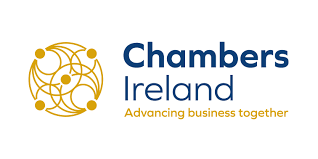Chamber’s Ireland Weekly Digest: 3rd July 2017

- Trade News- Applications for New Round of Tariff Suspension/ Quota Schemes
On the 1st July, The Department of Jobs, Enterprise and Innovation has today (1st July 2017) welcomed the new round of the tariff suspension/quota schemes and is calling for applications from manufacturers in the chemicals, microelectronic and related sectors. The tariff suspension scheme offers the possibility for such companies to import raw materials, components or intermediate products from outside the European Union free from tariff duty, if the item cannot be sourced in the EU. The tariff quota scheme is designed to address shortages in the availability of required materials within the EU and can be applied for in the same way as suspensions.
Closing date and time for the receipt of the next round of applications is 5.30p.m. on Friday, 28th July 2017. Applications should be sent by e-mail to tariffschemes@djei.ie (Word format only) and posted to the Department at the address below. Please note that late or incomplete applications will not be accepted by the Department.
- Doing Business in Asia- Resources for Chambers
EALink aims to provide European businesses with the information and instruments necessary to build knowledge about Asian markets.
As a first step, the Country Factsheets page displays key economic data and a summary of the business environment of 16 countries in Asia. Building on such knowledge, the services offered by the EU Business Support Organisations located in those same countries will enable you to seize opportunities in Asia.
For more information trade opportunities and further resources, please visit www.ealink.eu.
- Draft National Risk Assessment – Consultation Process Open
The Government has now published the draft National Risk Assessment 2017 to encourage and support further debate on the important issues involved in advance of finalisation of the 2017 assessment. A copy is attached, and it can also be found here.
As in previous years, the draft is being published for a wide ranging public consultation to provide an opportunity for interested persons, civil society groups, political parties and others to contribute their views by 18 July.
In particular, views are sought on the following questions, although submissions are not confined to these questions:
1. Have the correct strategic risks been identified or are there other significant risks that should be included?
2. Should any particular risks be prioritised in light of their significance?
3. Are any of the risks listed not significant enough to warrant inclusion?
- Europe for Citizens programme 2016-2020
Have you considered sharing learning with other European organisations? Running a Town Twinning project could be the answer.
You may think twinning is better suited to local authorities but this is no longer the case! Under the Europe for Citizens programme 2016-2020, town twinning and town networking projects can be led by nonprofit organisations including community groups, schools and sporting organisations.
A Call for Proposals is now open and closes on 1 September 2017 at 11am. Applications must be in line with the priorities of the programme:
- Understanding and debating Euroscepticism
- Solidarity in times of crisis
- Combating the stigmatisation of immigrants
- Debate on the future of Europe.
Interested? Now’s the time to start preparing! The Wheel we can give you advice on project ideas, partnership development and the application process.
Email Deirdre at The Wheel today for more information or to sign up for training.
5.Peninsula
https://www.peninsulagrouplimited.com/ie/accrual-public-holidays-different-types-leave/
6.European Commission Reflection Paper on the Future of EU Finances
Continuing the process started with the publication on 1 March 2017 of the European Commission’s White Paper on the Future of Europe, the Commission has set out possible ways forward for the Future of EU Finances, in the last of its “Future of Europe Reflection Papers”.
The Reflection Paper looks at this challenge and puts the key elements for discussion on the table, structured around the five scenarios of the White Paper: will the EU simply carry on, do less together, move ahead at different levels of intensity, do less but more efficiently or do much more together? Each of these illustrative scenarios would have different consequences – both in terms of how much to spend for what purpose, and on where the money could come from. Options range from reducing spending for existing policies to increasing revenues.
In addition, the reflection paper sets out the basic features of the EU budget and charts the principal trends and developments in key policy areas like cohesion or agriculture. It also addresses overarching issues like the added value of EU funding or the articulation between EU funding and structural reforms in Member States.
